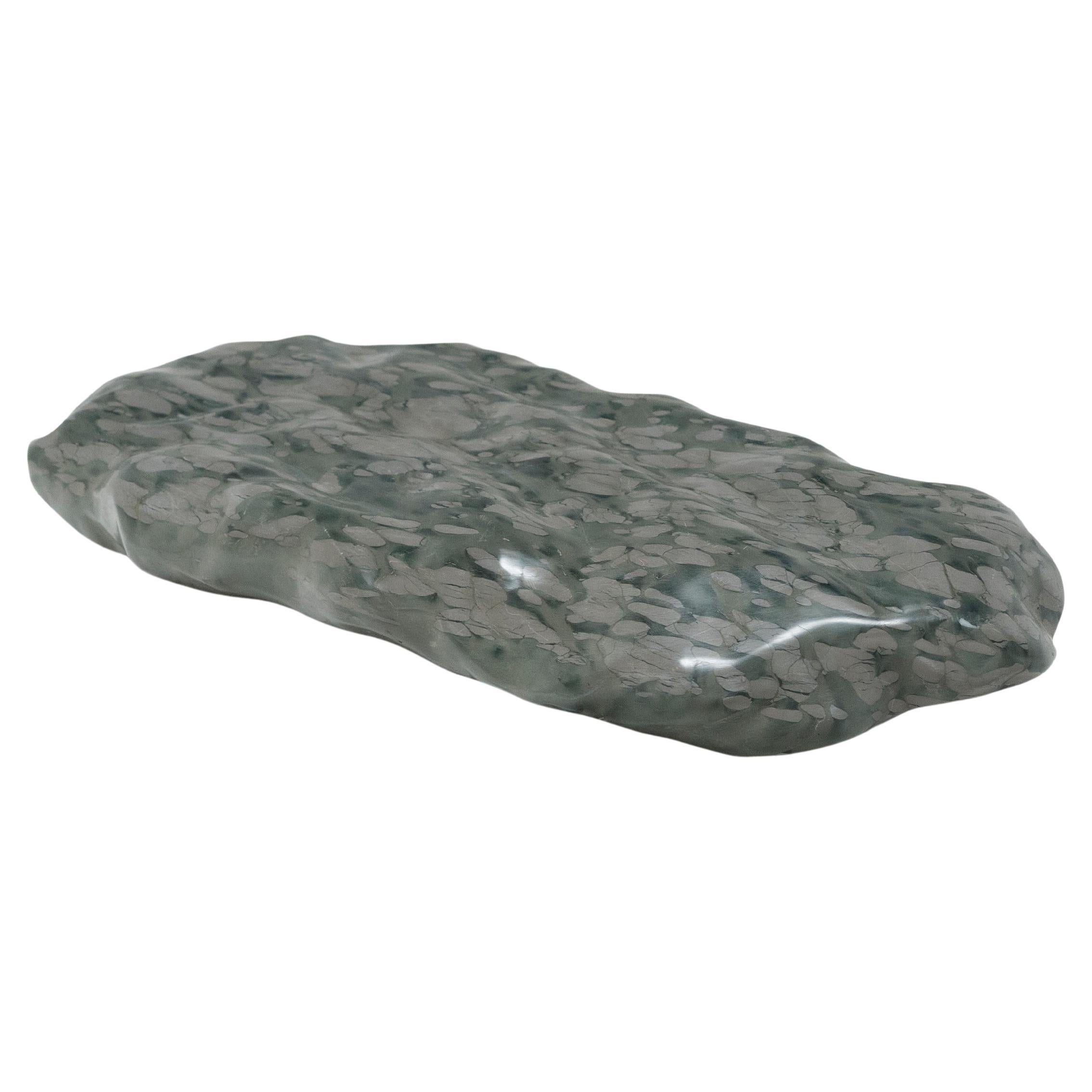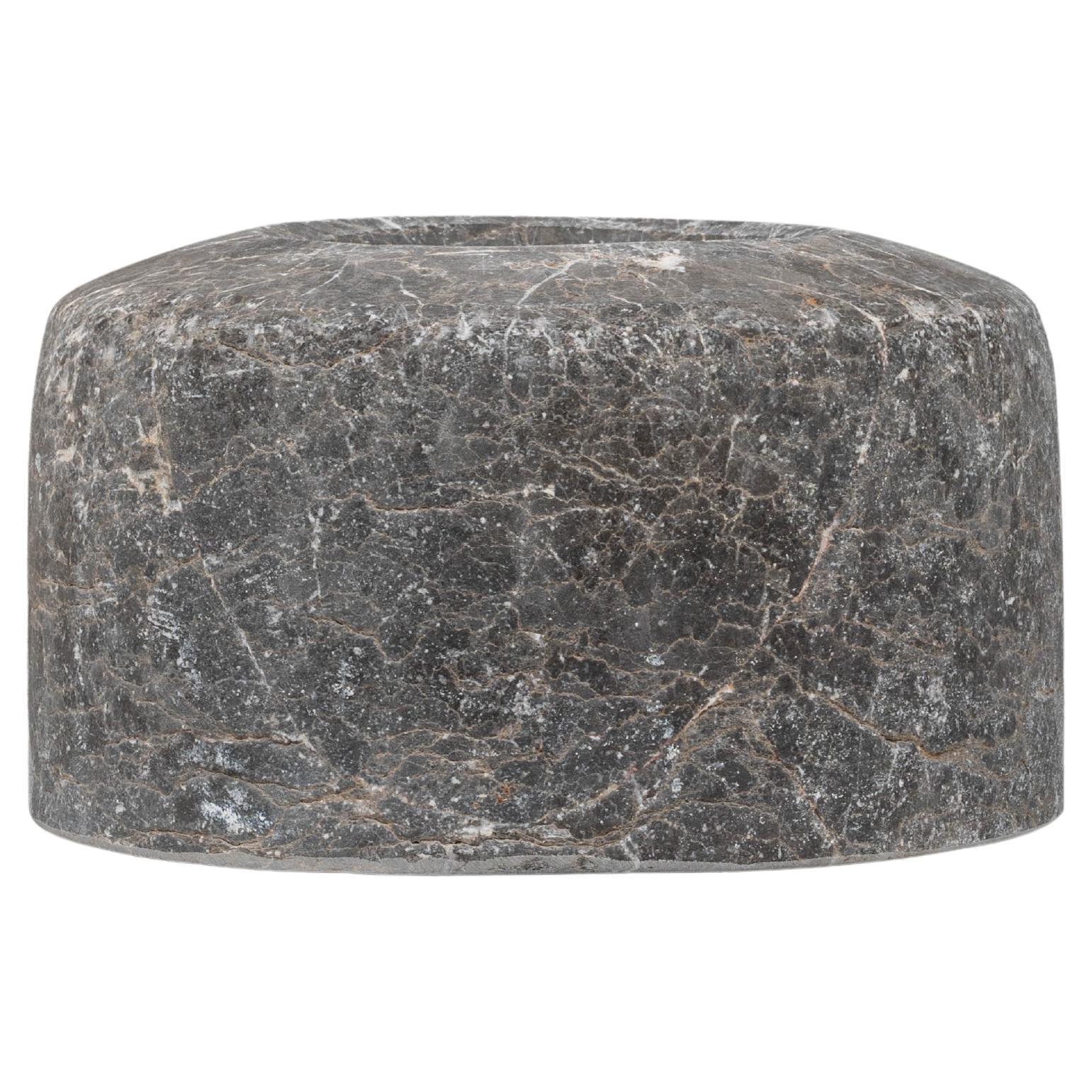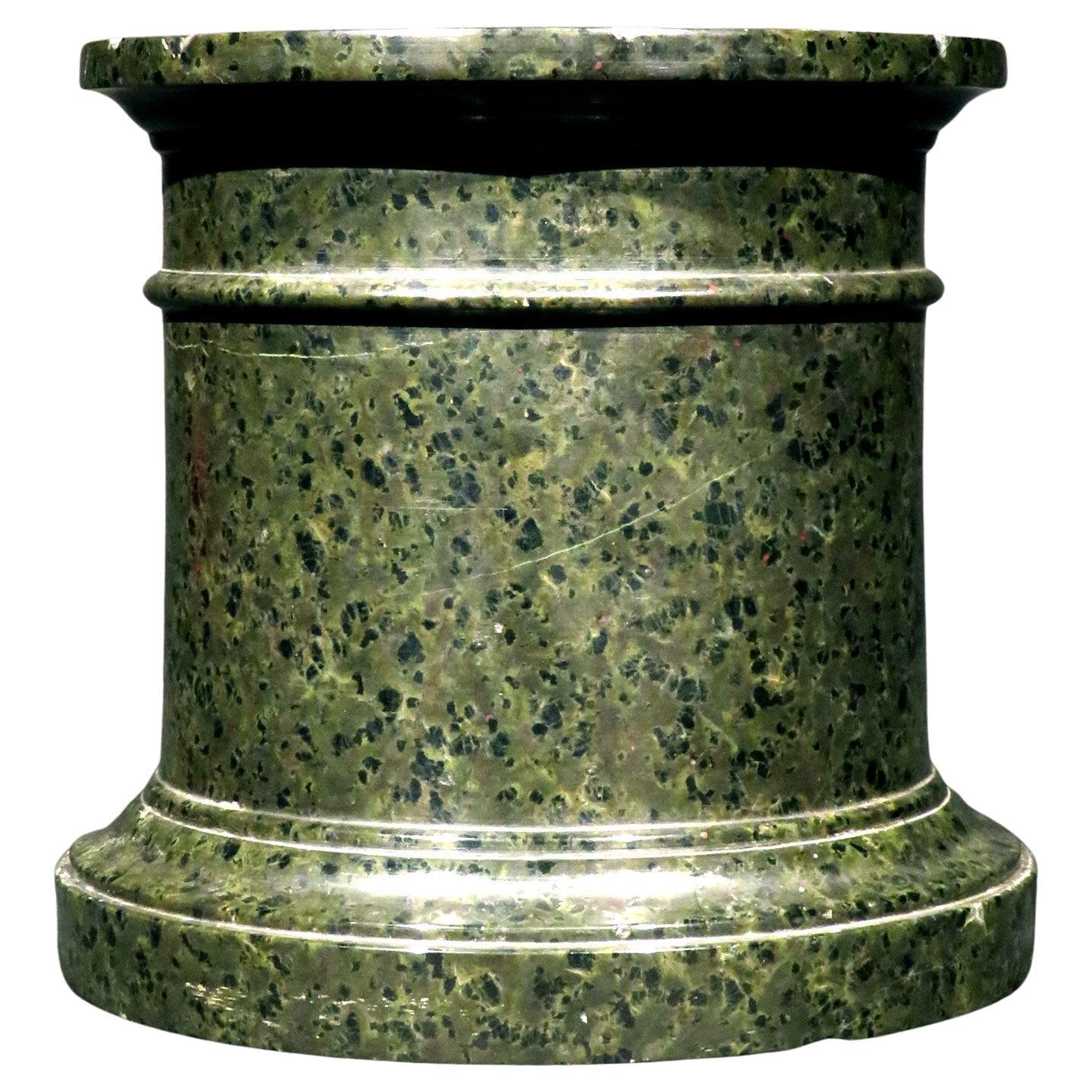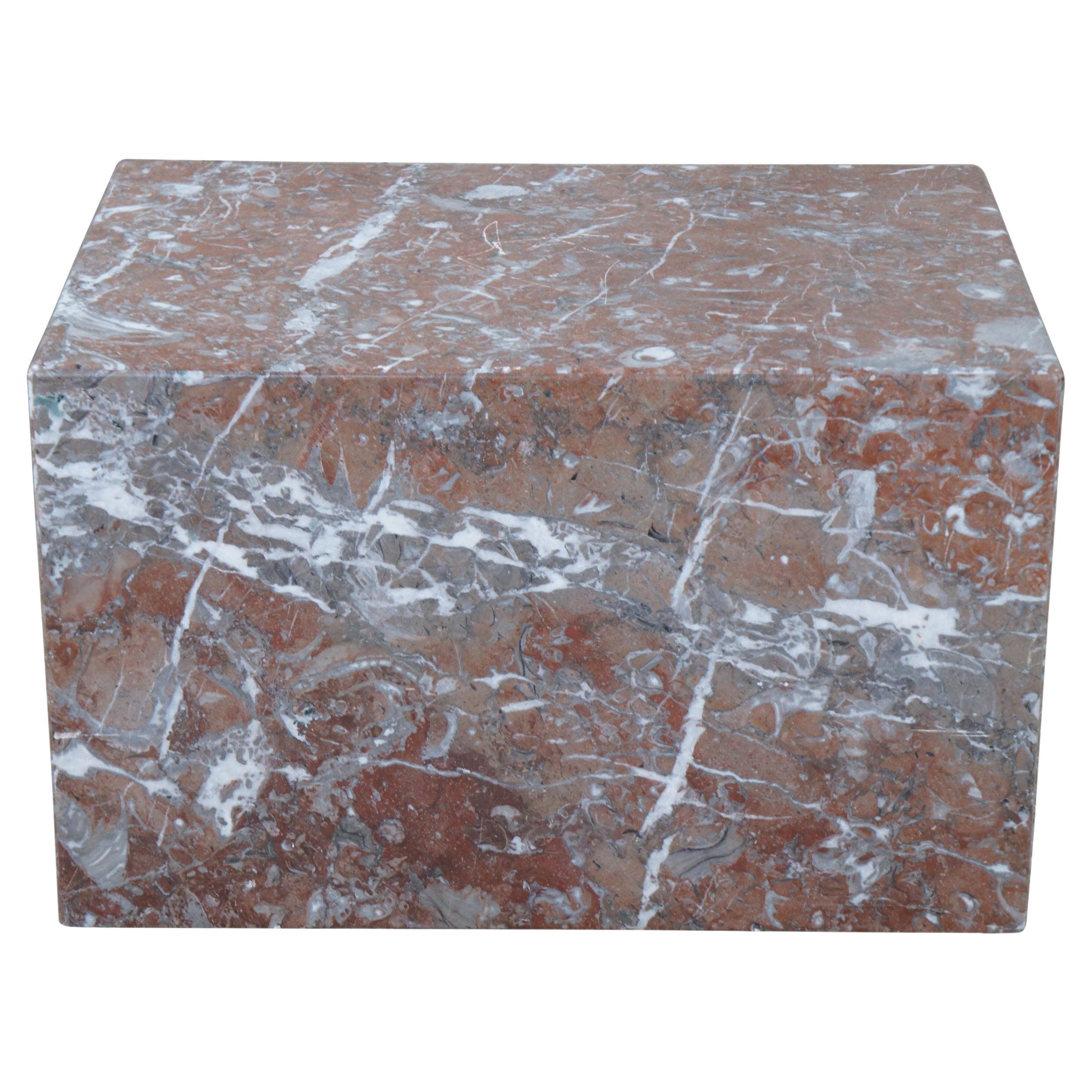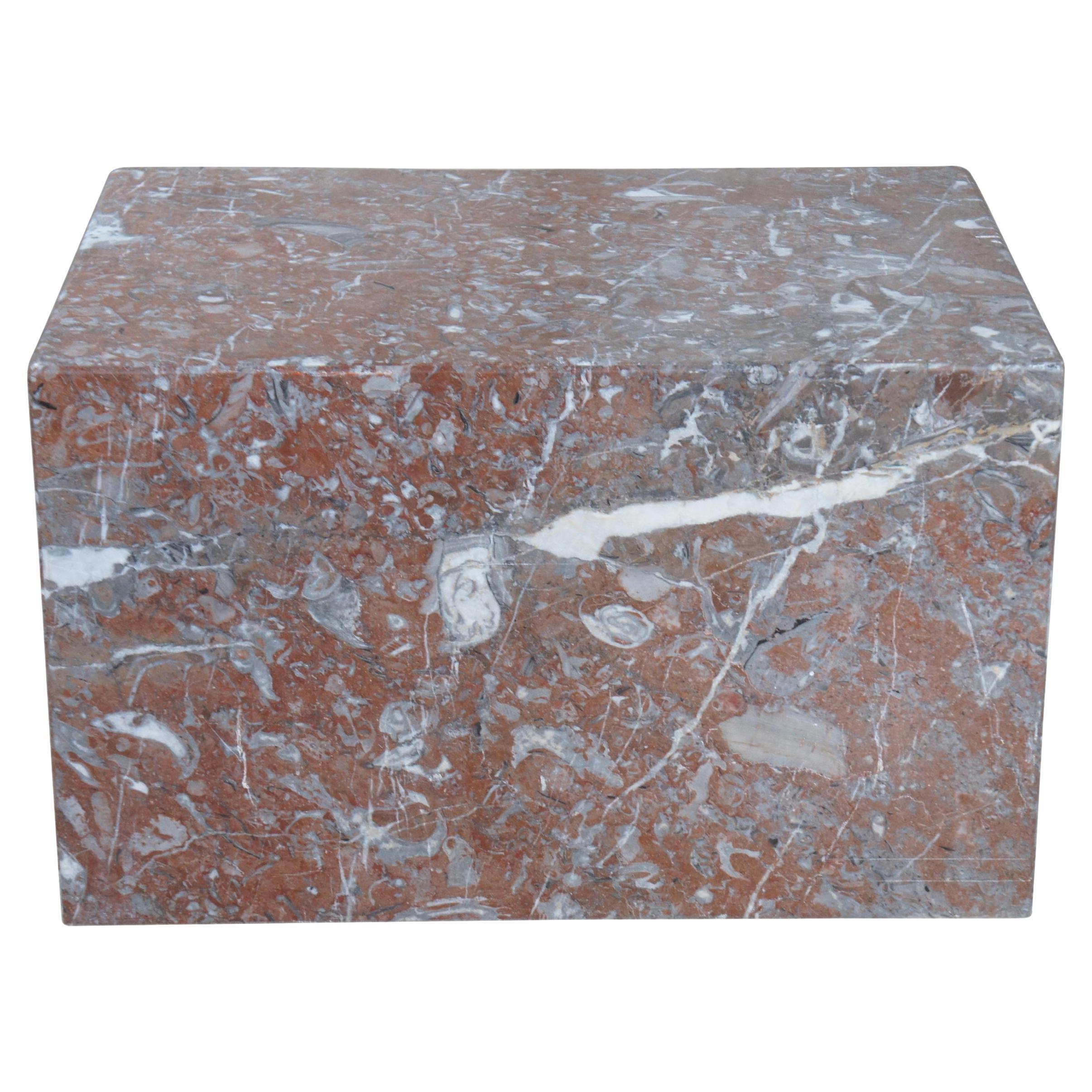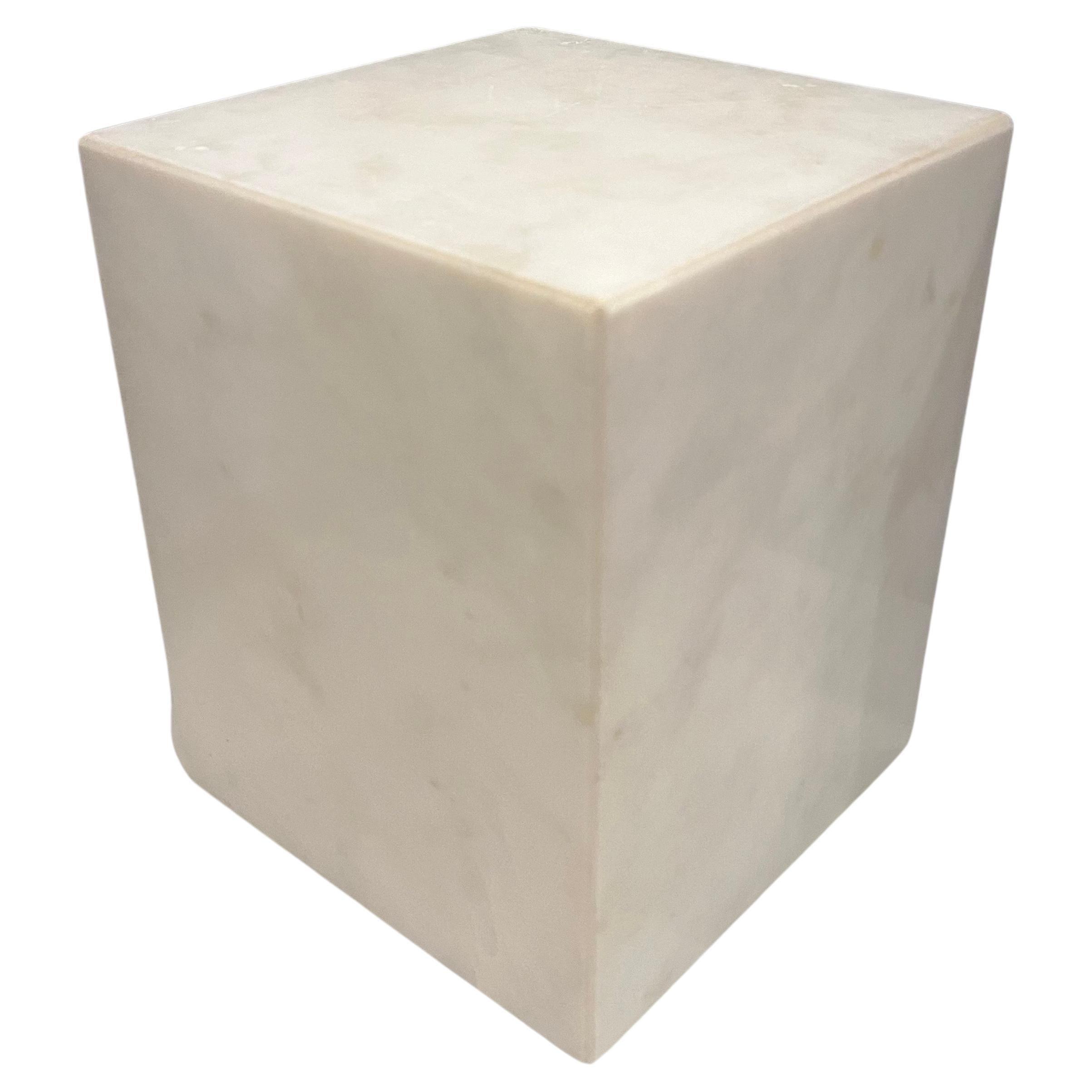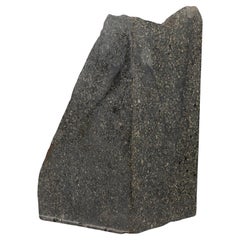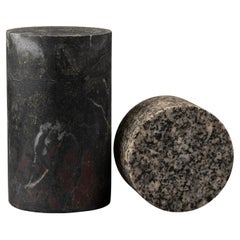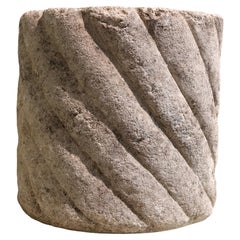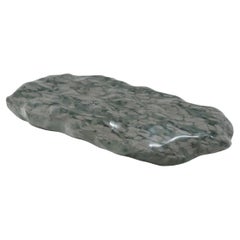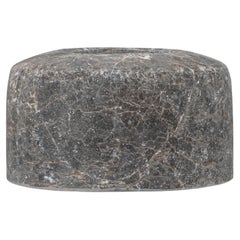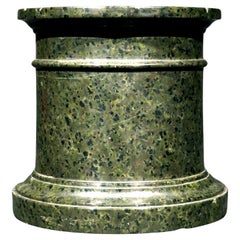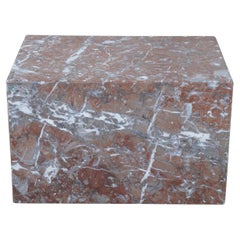Items Similar to Elegant base in porfido Serpentino Antico
Want more images or videos?
Request additional images or videos from the seller
1 of 5
Elegant base in porfido Serpentino Antico
$3,581.68
£2,641.45
€3,000
CA$4,950.42
A$5,505.19
CHF 2,889.49
MX$67,133.19
NOK 36,517.43
SEK 34,236.55
DKK 22,839.47
About the Item
Elegant fragment in porfido Serpentino Antico
19,5 x 18 x 12 cm
This beautiful fragment can be used as a base made of rare marble, ideal for displaying ancient or modern objects and sculptures. The pure shape and the beauty of the raw material also make it suitable for decorating a table or a bookshelf.
Ancient Green Porphyry, also known as Greek Green Porphyry or Serpentine, is one of the most famous stones among ancient marbles. It originates from the Peloponnese, specifically from the Krokea district near the Psephì hill, located between the villages of Stefania and Krokea itself.
The use of the word “originates” is intentional, as Ancient Green Porphyry is one of the few materials—like two types of Egyptian ophites and Spanish Green Porphyry—that is not "quarried" but rather "collected" in the form of small blocks, typically measuring less than one meter. Pausanias informs us of this, stating:
"Not all stones are extracted from quarries, but many are found scattered underground, some of the most precious kind, like the Laconian green, which is more cheerful than all others."?(Pliny, Natural History, 36, 11)
Pliny, in his Naturalis Historia, described this material as unique in both history and appearance. It was so renowned that it was referred to as the “Emerald of Laconia” (as cited by Theophrastus), the “Laconian Stone” (Lucan), or krokeatis lithos, a name still used in Greece today. The Latin writer Pausanias likely identified it as Taigeto marble, named after the tallest mountain in the extraction area. It was also known by Roman synonyms such as lapis lacedaemonius, lacedaemonium (marmor) viride in Pliny’s Natural History (Pliny, N.H., 36, 55), and simply lacedaemonium in Diocletian’s Edict, where it was listed as one of the most expensive stones, valued at an impressive 250 denarii.
The Romans called it “Spartan Green,” while the Byzantines referred to it as marmo piganusio, meaning a stone with a color similar to rue. The name “Serpentine” likely dates back to the Middle Ages, as Italian marble workers thought its color and texture vaguely resembled the skin of certain snakes. Other historical names include serpentino della stella, porfido verde antico (Ancient Green Porphyry), and porfido verde di Grecia (Greek Green Porphyry), reflecting the tradition that marbles were named either by their color or by their region of origin, as stated by Agricola in 1546:
"Marmora do not have unique names, but are named either after their inherent colors or the regions in which they are found."
As Lazzarini reports in his Poikiloi Lithoi, Versiculores Maculae: The Colored Marbles of Ancient Greece, this material captivated poets and writers with its striking diversity. It is a unique stone, generally dark green but also featuring shades of yellow-green, purplish-brown, and even emerald hues. It has a porphyritic texture due to its crystalline inclusions, which range in size from millimeters to centimeters and sometimes form star-like clusters.
When considering Ancient Green Porphyry, one must think of a material with multiple variations in appearance—many different facets of a single stone. Its geological formation resulted from a metamorphic process that overlaid the original magmatic material, producing a wide variety of similar but never identical stones across different regions. As Agricola noted:
"Either by their inherent colors or by the regions in which they are found."
Various types of this porphyry have been found on the market, each distinct yet unmistakably belonging to the same family: the holotype, Porfido Vitelli, verde antico risato (cracked green porphyry), the brown-violet variety, the agatato (agate-like) variety, the brown type, and the bruciato (burnt) variety, the latter likely an artificial alteration achieved by heating the stone.
This is a truly fascinating and characterful material. Due to its unique formation and scarcity, it has never been widely available, preserving its symbolic significance through the centuries. Initially, it was used to represent the “barbarian” peoples who inhabited its place of origin. However, through conceptual evolution, it came to symbolize the emperor who had subdued them, his power, and his greatness—just as many other strikingly beautiful stones from the empire’s frontiers were reserved exclusively for the emperor and his family.
- Dimensions:Height: 7.68 in (19.5 cm)Width: 7.09 in (18 cm)Depth: 4.73 in (12 cm)
- Style:Classical Roman (Of the Period)
- Materials and Techniques:
- Place of Origin:
- Period:
- Date of Manufacture:roman period
- Condition:Wear consistent with age and use.
- Seller Location:Bruxelles, BE
- Reference Number:1stDibs: LU6666245072362
About the Seller
5.0
Vetted Professional Seller
Every seller passes strict standards for authenticity and reliability
1stDibs seller since 2022
15 sales on 1stDibs
Typical response time: 2 hours
- ShippingRetrieving quote...Shipping from: Bruxelles, Belgium
- Return Policy
Authenticity Guarantee
In the unlikely event there’s an issue with an item’s authenticity, contact us within 1 year for a full refund. DetailsMoney-Back Guarantee
If your item is not as described, is damaged in transit, or does not arrive, contact us within 7 days for a full refund. Details24-Hour Cancellation
You have a 24-hour grace period in which to reconsider your purchase, with no questions asked.Vetted Professional Sellers
Our world-class sellers must adhere to strict standards for service and quality, maintaining the integrity of our listings.Price-Match Guarantee
If you find that a seller listed the same item for a lower price elsewhere, we’ll match it.Trusted Global Delivery
Our best-in-class carrier network provides specialized shipping options worldwide, including custom delivery.More From This Seller
View AllLarge Imperial Black Porphyry specimen
Located in Bruxelles, BE
Rare and Large Imperial Black Porphyry architectural fragment
partially polished,
23,5 x 15 x 12 cm
Porfido Nero is a rare Black Variety of Imperial Porphyry from Gebel Dokhan (th...
Category
Antique 15th Century and Earlier Italian Classical Roman Natural Specimens
Materials
Porphyry
Two bases in rare Breccia Africano and Granito Nero
Located in Bruxelles, BE
Two bases in rare Breccia Africano and Granito Nero
Cylinder in Breccia Africano
H 12.5 × D 7 cm
Cylinder in Granito Nero
H 6 × D 9 cm
These two cylindrical bases made of rare marb...
Category
Antique Early 19th Century Italian Neoclassical Natural Specimens
Materials
Marble
Two cylindrical colored marble specimens
Located in Bruxelles, BE
Two cylindrical specimens in Breccia Skyros Marble or Settebassi
Those two cylindrical specimens are perfect to serve as bookends or to presents works o...
Category
Antique Late 19th Century Italian Classical Roman Bookends
Materials
Breccia Marble
$2,483 Sale Price / set
20% Off
17th century twisted column
Located in Bruxelles, BE
Twisted Column
Italy, 17th Century
H 22 cm x diameter 21,5 cm
central hole diameter : 9,2 cm
This sculpted stone, dating from the 17th century, is a fragment of a twisted or helical...
Category
Antique 17th Century Italian Renaissance Planters and Jardinieres
Materials
Stone
double capital - french, end of 13th century
Located in Bruxelles, BE
Double capital with hook decorations
Grey stone
France, 13th century
Reduced—cut in the back in modern times
H 22 x L 41 x P 20 cm
'Hook' is the name given today to these ornamen...
Category
Antique 15th Century and Earlier French Medieval Architectural Elements
Materials
Stone
Veneto- Saracenic candlestick - 15th century
Located in Bruxelles, BE
Veneto- Saracenic candlestick
Engraved bronze
15th century
13 x 8,5 cm
This rare candlestick exemplify exquisite craftsmanship, featuring a bell-shaped base with a flared foot adorn...
Category
Antique 15th Century and Earlier Italian Renaissance Chandeliers and Pen...
Materials
Bronze
You May Also Like
Chinese Zhenzhu Meditation Stone
Located in Chicago, IL
A well-chosen stone is the focal point of both a traditional Chinese garden and a scholar's studio - evoking the complexities of nature and inspiring creative thought. This sculptura...
Category
21st Century and Contemporary Chinese Organic Modern Natural Specimens
Materials
Stone
19th Century European Marble Mortar
Located in High Point, NC
This 19th Century European marble mortar is a striking piece, hand-carved from richly veined dark gray marble with intricate white and ochre veining throughout. The cylindrical form ...
Category
Antique 19th Century European Figurative Sculptures
Materials
Marble
A Fine & Large 19th Century Grand Tour Serpentine Marble Socle, Italy Circa 1800
Located in Ottawa, Ontario
An impressively large mottled 'verde prato' serpentine socle of turned columnar form, rising from a stepped base to a flattened plateau above a cavetto-shaped edge. In relation to it...
Category
Antique Early 19th Century Italian Grand Tour Architectural Elements
Materials
Marble, Serpentine
Italian Minimalist Marble Plinth Sculpture Statue Display Pedestal Stand MCM 26"
Located in Dayton, OH
Italian minimalist cube form plinth, circa 1970s. Made from Royal Rouge Marble with pink and grey color. The perfect base to display any heavy object, sculpture or statue. Can also ...
Category
Vintage 1970s Minimalist Pedestals
Materials
Marble
$2,400 Sale Price
52% Off
Italian Minimalist Marble Plinth Sculpture Statue Display Pedestal Stand MCM 26"
Located in Dayton, OH
Italian minimalist cube form plinth, circa 1970s. Made from Royal Rouge Marble with pink and grey color. The perfect base to display any heavy object, sculpture or statue. Can also ...
Category
Vintage 1970s Minimalist Pedestals
Materials
Marble
$2,400 Sale Price
52% Off
Postmodern Small Pedestal Marble For Display Sculptures
By Massimo Vignelli
Located in San Diego, CA
Great piece of .5" walls with beveled edges, in Italian Carrara marble perfect for display sculptures, etc.
Category
20th Century Italian Post-Modern Figurative Sculptures
Materials
Marble
More Ways To Browse
Natural History Specimen
Specimen Table
Ancient Fragment
Marble Specimen
Antique Marbles
Antique Meter
Marble Specimen Table
Italian Specimen Marble
Ancient Egyptian Table
Snake Egypt
Verde Antico Marble
Antique Metamorphic
Antique Snake Table
Antique Fragment Marble
Lapis Egyptian
Antique Roman Agate
Carved Stone Fragments
Roman Marble Fragment
